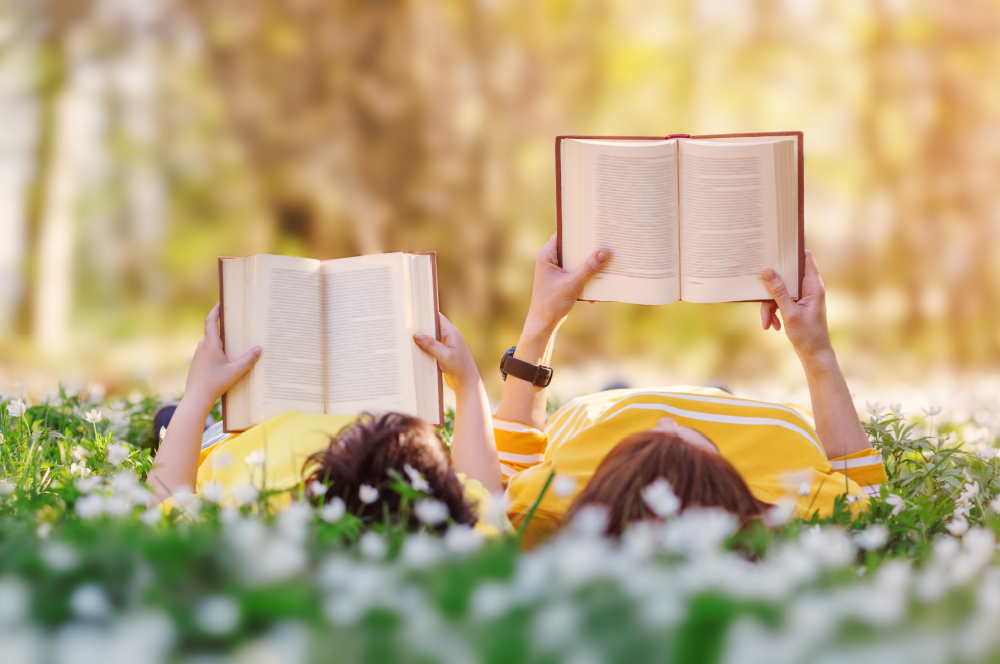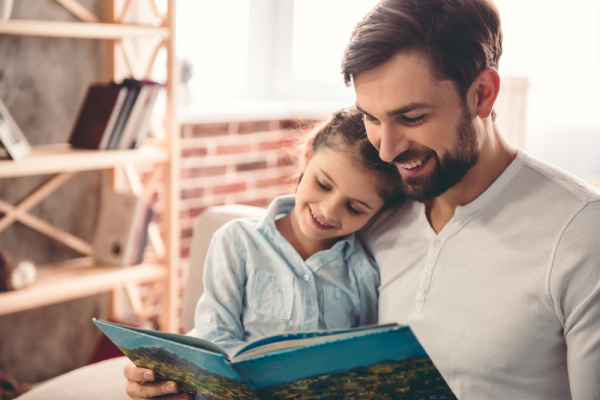Let’s reread our favourite children’s books
Let’s reread our favourite children’s books
Let’s reread our favourite children’s books
-
Hannah
-
Hannah

I use the term ‘book friends’ here because it so perfectly conveys our relationship with favourite books from childhood. Those books we read over and over back then were loyal and steadfast friends, guaranteed to entertain, to comfort and to inspire. No matter what was happening for us, no matter how scary or bewildering the big wide world around us, these books were there for us, offering a safe and constant place to which we could escape.
My own favourite books were so well-thumbed, the spine so bent, that sometimes a page or two would break free, and then I would be distraught until my parents – themselves ardent bibliophiles – doctored the book back to health with glue or tape. I still own some of those books, yellowed by now with age; of course I could replace them with more modern, robust editions, but I will not, for the books represent such happiness for me.
The Arabian Nights was my favourite, and compilations of the folk tales put into print by the Brothers Grimm and Hans Christian Anderson; from an early age my governess’s oral storytelling instilled in me a love for the fairy tale. I was fond of the tales of Narnia too, by CS Lewis; the idea that a magical land could exist beyond the back of a wardrobe was thrilling. Alice in Wonderland held a similar appeal. Black Beauty was a particular favourite, as was Heidi – I loved the setting of the Swiss Alps.
All of these children’s books, and so many more, were my faithful friends, and years later I introduced them to my own children, hoping they would enjoy them as much as I had and grow into keen readers (‘Children are made readers on the laps of their parents’ – Emilie Buchwald). But I soon realised that as a grown adult reading to her children, I was getting just as much from the books as they were. I realised that I too still wanted to read these books.

The American poet Edna St. Vincent Millay wrote:
Childhood is not from birth to a certain age and at a certain age
The child is grown, and puts away childish things.
Childhood is the kingdom where nobody dies.
I think perhaps adults have a sense that we ought to ‘put away childish things’, and that one of these things is books we read as a child. But why, if the book is still a friend? Is the book only for children in any case? CS Lewis wrote:
A children’s story that can only be enjoyed by children is not a good children’s story in the slightest.
And WH Auden wrote:
There are good books which are only for adults, because their comprehension presupposes adult experiences, but there are no good books which are only for children.
Quite simply, the marker of a great children’s book is that it moves the adult reading it as much as the child.

Journalist Sadie Nicholas recently wrote an article for the Spectator entitled ‘Why adults should read children’s books’ in which she shares that ‘at 49 years old, reading children’s books curled up on my own has become my guilty pleasure’. Reading children’s books, she writes, can help us to ‘boost creativity, reduce stress, promote escapism [and] unleash our imaginations’. It allows us, writes Dr Louise Joy, an associate professor at Cambridge University, to ‘retrieve an earlier, original part of ourselves – a way of thinking; a set of thoughts or feelings; a sense of who we are – which lies forgotten, dormant beneath the surface’. It allows us to reconnect with ourselves, to what we dreamt of in childhood, to tap into feelings of hope and wonder and the sense of so many possibilities ahead.
What are your favourite books from childhood, and when did you last read them? Is it time to add one or two to your ‘to be read’ pile, to set aside your adult novels or non-fiction books and turn to an old friend?
Louis L’Amour wrote, ‘Once you have read a book you care about, some part of it is always with you.’ What parts of you are there, waiting to be rediscovered?
Photo credits: 1) LeManna/Shutterstock; 2) Monkey Business Images/Shutterstock; 3) George Rudy/Shutterstock.